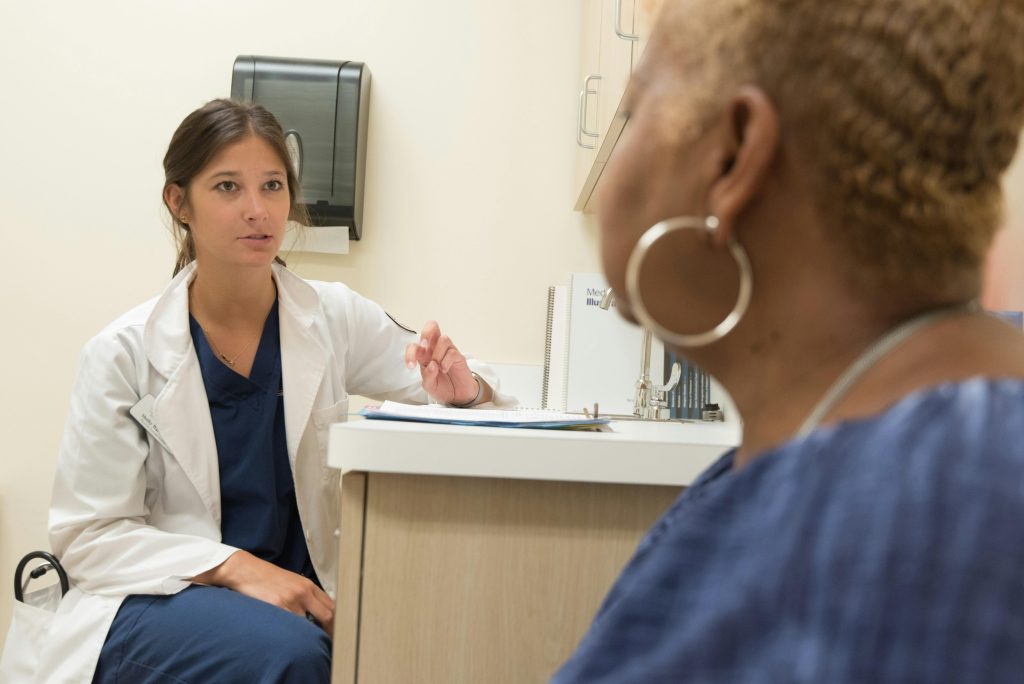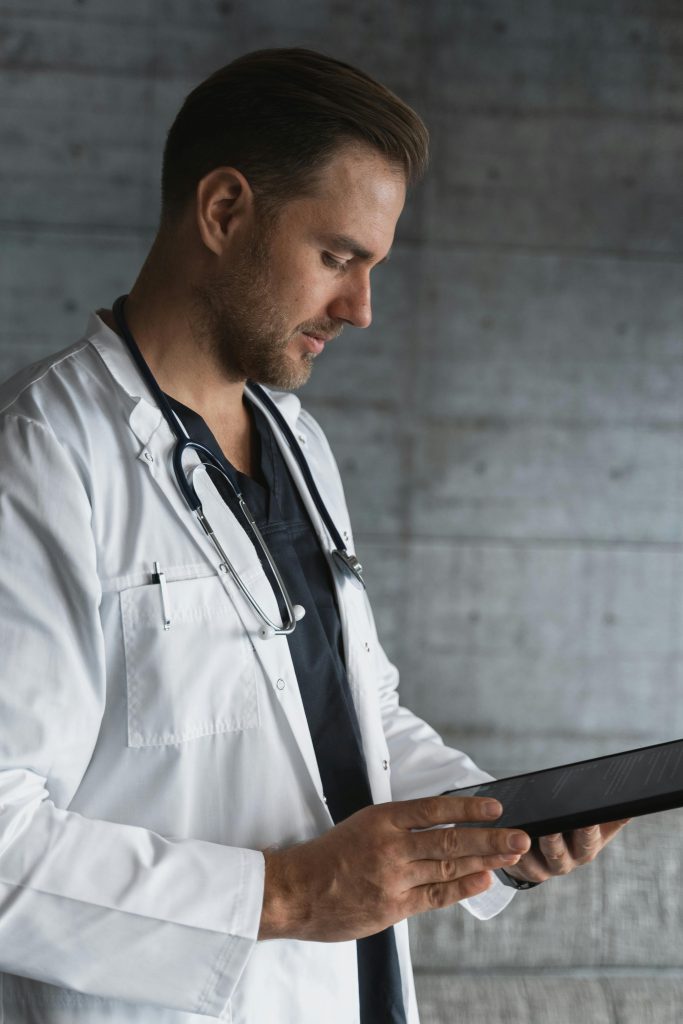The consultation room door closes, and you sit across from your healthcare provider, ready to embark on a journey to better health. They’re knowledgeable, articulate, and present a meticulously crafted plan to address your obesity. Yet, a nagging thought persists: they’ve never experienced the daily realities of living in a larger body. They haven’t navigated the world with the constant awareness of size, the societal biases, the physical limitations, or the emotional weight that often accompanies obesity. Can they truly understand?
This question, while perhaps uncomfortable to voice, lies at the heart of a complex debate. Does personal experience with obesity enhance a healthcare professional’s ability to treat it effectively? Or can rigorous training, scientific knowledge, and empathetic communication bridge this experiential gap? As we delve into this nuanced topic, we’ll explore the potential advantages and disadvantages of both scenarios, ultimately aiming to understand what truly constitutes effective and compassionate obesity care. Understanding obesity is a very complex and sensitive topic for all involved.

The Argument for Lived Experience: Walking a Mile in Their Shoes
Proponents of healthcare professionals with lived experience often emphasize the profound impact of empathy born from personal understanding. They argue that someone who has navigated the challenges of weight loss, the plateaus, the emotional eating, and the stigma associated with obesity can offer a level of insight that textbooks and clinical trials alone cannot provide.
- Enhanced Empathy and Trust: A provider who has “been there” may foster a stronger sense of trust and understanding. Patients might feel more comfortable sharing their struggles, knowing their provider can relate on a personal level. This shared experience can create a more collaborative and less judgmental environment, crucial for long-term adherence to treatment plans.
- Practical, Real-World Advice: Lived experience can translate into practical advice that goes beyond theoretical recommendations. Someone who has successfully lost weight might offer valuable insights into coping mechanisms, navigating social situations, and finding sustainable lifestyle changes that truly work in the context of daily life.
- Deeper Understanding of Psychological and Emotional Aspects: Obesity is often intertwined with complex psychological and emotional factors such as body image issues, depression, anxiety, and disordered eating patterns. A provider with lived experience may possess a more intuitive understanding of these nuances and be better equipped to address them sensitively.
- Increased Motivation and Hope: Seeing a healthcare professional who has successfully overcome obesity can be a powerful source of motivation and hope for patients. It can demonstrate that change is possible and provide a tangible role model.
Consider Sarah, a patient who had struggled with obesity for years. Her previous consultations with lean doctors often left her feeling misunderstood and judged. When she finally found a physician who openly shared her journey of weight loss, Sarah felt an immediate connection. “It was like she just got it,” Sarah explained. “She understood the shame, the frustration, the constant battle. Her advice wasn’t just clinical; it was based on real life, and that made all the difference.” This is the “personal” experience to understand obesity.

The Counterargument: Expertise Beyond Experience
Conversely, many argue that clinical expertise, grounded in scientific knowledge and evidence-based practices, is paramount, regardless of a healthcare professional’s personal weight history. They emphasize that rigorous training equips providers with the necessary skills to diagnose, treat, and manage obesity effectively. Understand obesity from the “doctor´” point of view.
- Objectivity and Scientific Rigor: Healthcare professionals are trained to approach medical conditions with objectivity, relying on scientific evidence and established guidelines. Personal experience, while valuable, can sometimes be subjective and may not align with the latest research or the individual needs of each patient.
- Comprehensive Medical Knowledge: Treating obesity often involves managing associated comorbidities such as diabetes, hypertension, and cardiovascular disease. A healthcare professional’s expertise in these areas, honed through years of study and practice, is crucial for providing holistic and safe care.
- Focus on Individualized Care: Effective obesity treatment requires a personalized approach, considering each patient’s unique medical history, lifestyle, preferences, and goals. A skilled provider can develop tailored plans based on these individual factors, irrespective of their own weight.
- Professional Boundaries and Focus on the Patient: Maintaining professional boundaries is essential in the patient-provider relationship. While sharing personal experiences can build rapport, the focus should always remain on the patient’s needs and journey. Overemphasis on the provider’s own experience could potentially shift the focus inappropriately.
Dr. Michael, an endocrinologist specializing in obesity management, has always maintained a healthy weight. However, his extensive knowledge of metabolism, nutrition, and behavioral science has enabled him to successfully treat countless patients. “My focus is always on the science and the individual in front of me,” he states. “I listen intently to their experiences, but my treatment recommendations are based on the best available evidence and tailored to their specific circumstances. Empathy is crucial, but it must be coupled with clinical expertise.”

The Importance of Empathy and Communication, Regardless of Size
Ultimately, the effectiveness of an obesity healthcare professional may hinge less on their personal weight history and more on their ability to demonstrate empathy, communicate effectively, and provide evidence-based care.
- Active Listening and Validation: A provider who actively listens to their patients’ concerns, validates their experiences, and acknowledges the challenges they face can build trust and rapport, regardless of their own size.
- Non-Judgmental Approach: Creating a safe and non-judgmental environment is paramount. Patients need to feel comfortable discussing their weight without fear of shame or criticism.
- Education and Empowerment: Effective providers empower their patients with knowledge about nutrition, exercise, and behavior change strategies, enabling them to make informed decisions about their health.
- Collaboration and Shared Decision-Making: A collaborative approach, where the patient is an active participant in developing their treatment plan, is crucial for long-term success.
- Cultural Sensitivity and Awareness of Bias: Healthcare professionals must be aware of their own potential biases, including weight bias, and strive to provide culturally sensitive and respectful care to all patients.

Bridging the Gap: Cultivating Empathy and Expertise
Instead of viewing personal experience and professional expertise as mutually exclusive, it’s more productive to consider how both can contribute to optimal patient care.
- For Healthcare Professionals without Lived Experience: Actively seeking to understand the lived experiences of individuals with obesity through patient narratives, support groups, and ongoing education can cultivate empathy and provide valuable insights. Focusing on patient-centered communication and actively listening to their challenges is crucial.
- For Healthcare Professionals with Lived Experience: While personal experience can be a powerful asset, it’s essential to maintain professional boundaries and ensure that treatment recommendations are grounded in scientific evidence and tailored to each individual patient’s needs. Continuous learning and staying abreast of the latest research are vital.
- The Role of Training and Education: Medical education should emphasize the importance of empathy, communication skills, and awareness of weight bias. Incorporating patient perspectives and lived experiences into training programs can help future healthcare professionals develop a more holistic understanding of obesity.
- More about long-term weight loss management here: https://www.bariradka.com/2025/05/06/a-holistic-approach-to-sustainable-weight-management/

Conclusion: The Heart of Effective Care
The question of whether a lean healthcare professional can effectively treat obesity is complex and multifaceted. While lived experience can undoubtedly foster empathy and provide unique insights, it is not the sole determinant of effective care. Rigorous training, scientific knowledge, and a commitment to patient-centered care are equally crucial.
Ultimately, the most effective healthcare professional is one who approaches each patient with empathy, respect, and a deep understanding of the multifaceted nature of obesity. They are active listeners, effective communicators, and are dedicated to providing evidence-based, individualized care. Whether they have personally navigated the challenges of obesity or not, their ability to connect with their patients, understand their struggles, and empower them on their journey to better health is what truly matters. The focus should not be on the provider’s personal history, but rather on their ability to provide compassionate, knowledgeable, and effective care that meets the unique needs of each individual seeking their help. The true measure of a healthcare professional lies not in their own size, but in the size of their heart and the depth of their commitment to their patients’ well-being.

